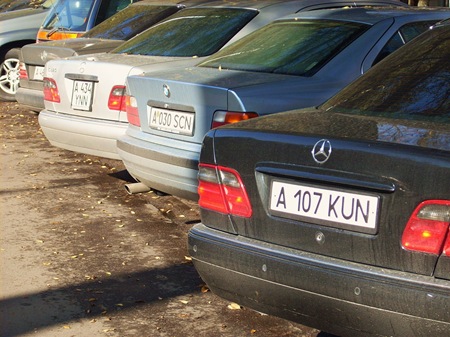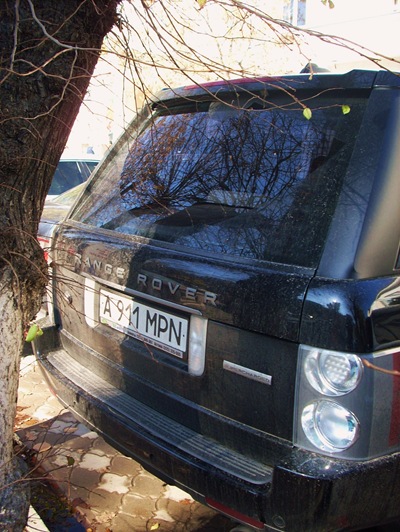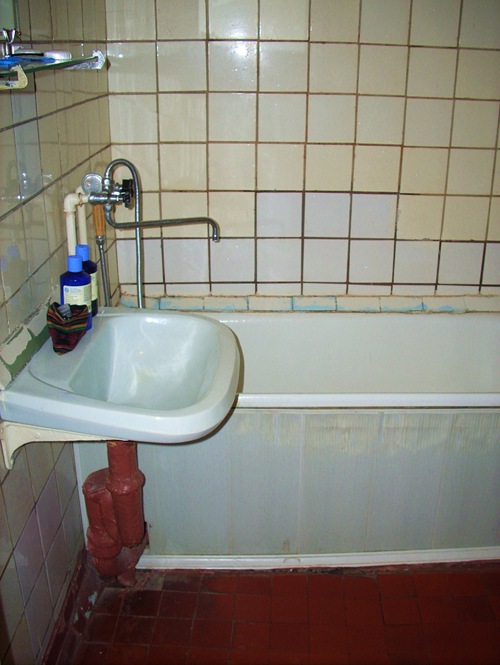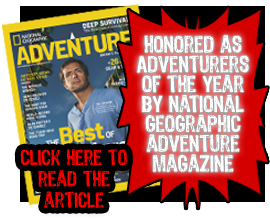Having watched the movie Borat: Cultural Learnings of America for Make Benefit Glorious Nation of Kazakhstan, I could not help but develop some preconceived notions of what Kazakhstan would be like, even though I knew the movie was fictitious and filmed entirely outside of Kazakhstan. My preconceived notions of Kazakhstan and its largest city, Almaty, would however, quickly be dispelled. After crossing the remote Kazakh/Russian border northeast of Semey, you immediately encounter sparsely populated, flat and mostly barren steppe. Gradually though, the steppe gives way to the mountains of the Zailiysky Alatau Range that greet you outside of Alma Ata or present day Almaty… a city that in many ways reminds me a lot of Denver. After having spent a few days here in Almaty, it is at times hard to realize that you are actually in Kazakhstan, or even Central Asia for that matter.
Almaty is a very cosmopolitan city and could pass for any major city in Europe or even the eastern United States, but once you start to see the price tags on anything from a cup of coffee to a pair of socks, the comparison ends. Tree-lined avenues are flanked by trendy cafes, upscale restaurants, posh nightclubs and expensive boutique shops. Smartly dressed Kazakhs are everywhere, Dolce and Prada are the order of the day and there is the largest concentration of high end Range Rovers, Mercedes and BMW’s I have ever seen. Almaty is definitely a vibrant and booming city as evidenced by the frantic construction on the southern edge of the city… including a brand new J.W. Marriott hotel, the multi-million dollar mansions at the foot of the mountains and the general cost of living here.

They are older models but still not what I expected to see in Kazakhstan

Oh yeah, new models blanket the city too
Without a doubt, this is the most expensive city I have ever been in. The average house in Almaty rents for about $10,000 a month in a country where outside the city, the average income is only about $500 per month. A standard, no-frills room at the Almaty Hyatt will cost you about $650 a night and eating out at a restaurant will fill your stomach but quickly empty your wallet. I have probably spent more money in the last four days here in Almaty than I have in total over the last month. Given that there is also a hotel shortage, rooms are very hard to come by and when you do find one, you are paying six times what you would expect it to cost. Our Soviet-Era digs are the cheapest in town and it is still setting us back $60 per night. Internet cafes are everywhere here, but you have to be Bill Gates to afford them… hourly rates are around $4 plus you have to pay another couple of bucks per hour depending on the amount of data you upload or download.

Our $60/night hotel bathroom in Almaty, Kazakhstan
Most of the money here in Kazakhstan, which is the richest country in Central Asia, and in Almaty, which is considered the financial heart of the region has come from the discovery of huge deposits of natural resources… most notably oil. Billions of dollars are pumped into the Kazakh economy from the export of oil and wheat and it is obvious in Almaty that that people here have become extremely wealthy. There is speculation though that the economic situation here in Kazakhstan is akin to a deck of cards on the verge of collapse as a result of poor economic planning and financial management coupled with political corruption. Whether there is a looming economic crisis or not, for the time being, people here in Almaty are definitely flexing their spending muscles in a city that would have Donald Trump pinching his pennies. Unfortunately for our accountant, we are stuck here for a week while we wait for our Uzbekistan and Turkmenistan visas… hopefully we will have enough left in the TWBR coffers to actually make it there. On the bright side, we are in an oil rich country, so gas is only $2.50 a gallon for 95 octane. By the way, do not mention Borat anywhere around here… it is a real sore subject, but considering how much money is floating around, you would think Kazakhstan would step up their PR campaign to show everyone that it is far from what you might expect.
